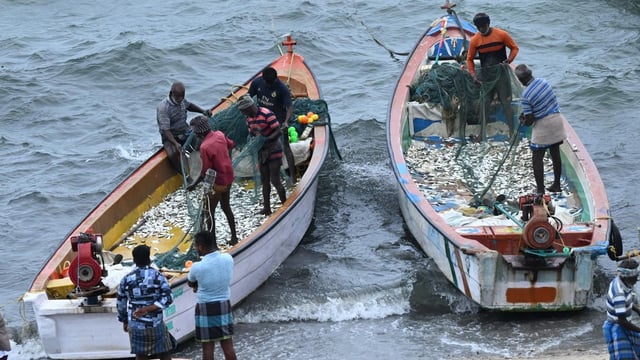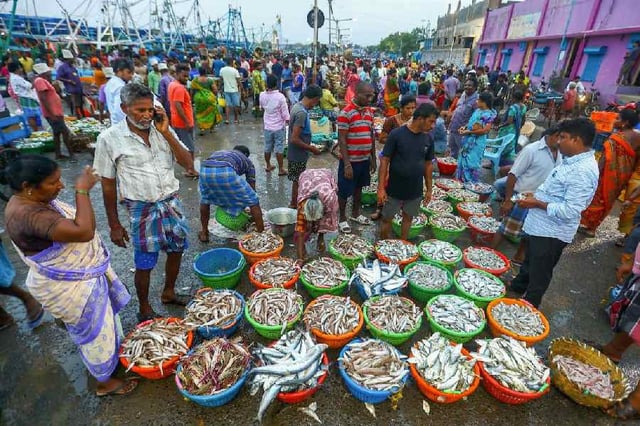Overview
- A Nature Geoscience study reconstructs 22,000 years of Bay of Bengal conditions, revealing that both strong and weak monsoons disrupt marine ecosystems.
- Extreme monsoon phases historically caused a 50% decline in surface nutrient availability, collapsing marine productivity and fish stocks.
- Future climate scenarios predict intensified monsoon variability, warmer waters, and disrupted ocean mixing, mirroring past ecosystem collapses.
- The Bay of Bengal, contributing nearly 8% of global fish production, supports over 150 million people, including artisanal fisheries in Bangladesh already strained by overfishing.
- Researchers emphasize the urgent need for sustainable fisheries management and climate mitigation efforts to prevent a food security crisis.

